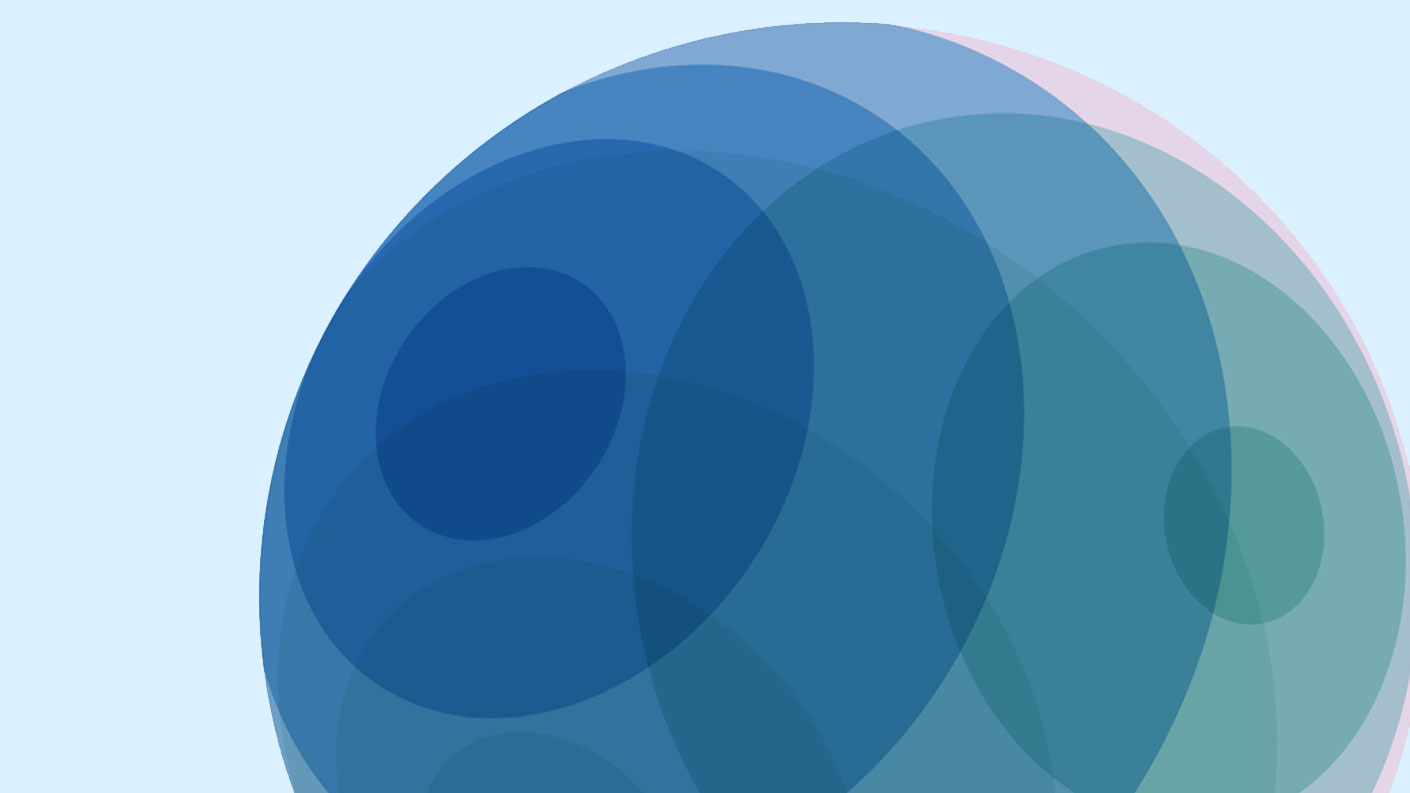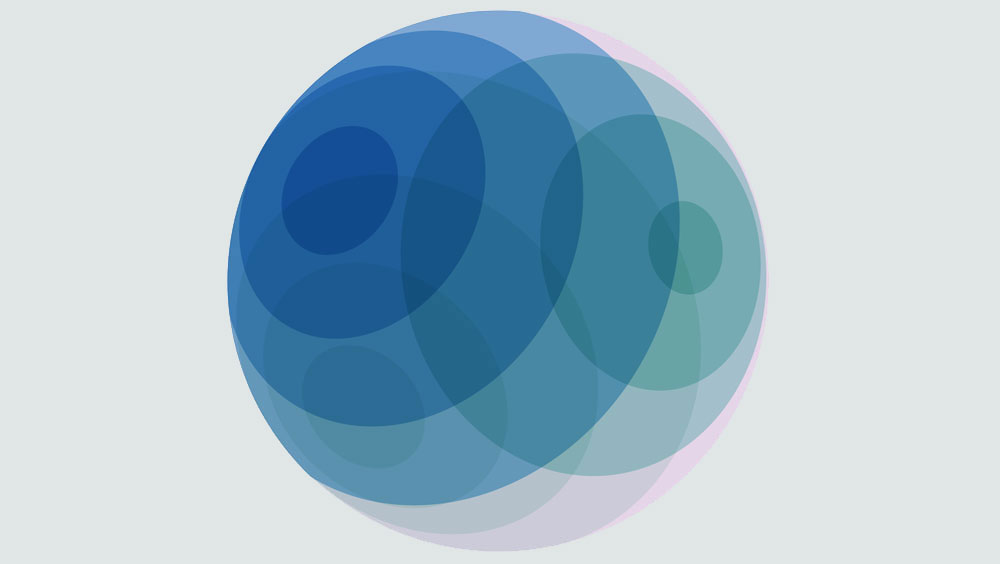Education

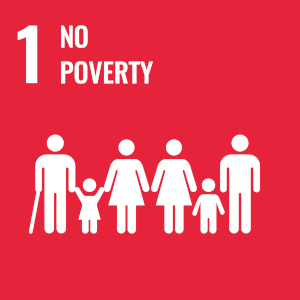
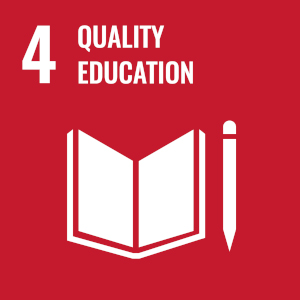
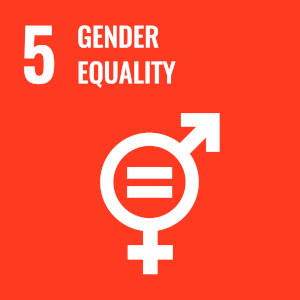
School attendance has increased but pupils do not learn sufficient basic skills in school
Currently, 91 per cent of school-aged children attend primary school. 72 per cent of children and young people complete basic education, and about half also receive upper secondary education. The share of out of school children and young people has halved between 2000 and 2020, but there are still more than 244 million who do not attend school. Gender equality in education has been strengthened. The share of girls attending school has grown particularly in Central and Southern Asia. Two-thirds of the world's countries have achieved gender parity in primary school participation, but only one in two countries has achieved this in lower secondary school and one in four in general upper secondary education.
The right of children with disabilities to education is still weakly realised. In the world’s poorest countries, three in ten children with disabilities have not attended school at all, and one out of two of those who have attended school have dropped out already at primary school level. The development of an equitable and inclusive education system has been identified as a key objective of education reforms in an increasing number of countries. At the same time, opportunities to learn literacy in one's own mother tongue and participate in pre-primary education have also been strengthened.
In the poorest countries, pupils do not learn sufficient foundational skills in school. In sub-Saharan Africa, 89 per cent of ten-year-olds do not understand or know how to read a simple written sentence. This learning poverty is linked with the quality of education. More competent and trained teachers are needed. In sub-Saharan Africa, the share of trained teachers has fallen from 84 per cent to 69 per cent between 2000 and 2019.
Despite the challenges posed by the quality of teaching, the share of literate people has increased: in Southern Asia, only 59 per cent of young people were literate in 1990, but this share had already risen to 90 per cent by 2020.
However, education does not necessarily provide sufficient professional competence needed in working life. In low-income countries, just over one per cent of 15-24 year-olds participate in vocational education and training. The corresponding share in Europe is 18 per cent.
The COVID-19 pandemic has deepened the learning crisis and exacerbated inequality in education. Over the past two years, 147 million children have lost a complete school year of their studies. It has been estimated that 24 million more children could fall outside the scope of education. Globally, learning poverty has increased from 57 per cent to 70 per cent in low and middle income countries. At the same time, the funding gap in education has increased as the resources available for public expenditure have decreased.
Please enter a valid video URL.
The URL can point to any video file or a Youtube video.
Finland defends the right to education
Finland improves inclusiveness of education systems
Finland strengthens teachers’ competences and the quality of teaching
Finland supports opportunities for vocational education and training
Finland’s support has strengthened the competence of teachers
- A total of 25,400 teachers, half of whom were women , have been trained in projects implemented by Finnish CSOs and higher education institutions in 2019-2021
- Between 2019 and 2021, 160,800 teachers or principals received in-service training with Finland's bilateral support and special multilateral funding
- With the support of the Global Partnership for Education and Education Cannot Wait funds, 920,000 teachers received support and training for organising distance education in 2020-2021
- A total of 6.25 million teachers have been employed or trained with the support of the World Bank between 2018 and 2020, more than half of whom were women. Finland supports the World Bank in the development of teacher continuous professional development materials
Finland’s support has improved the quality of teaching and strengthened school systems
- Finland has supported the reform of school systems in 28 partner countries
- The education sector programmes supported by Finland have developed the quality of education in 120,700 schools
- As a result of projects coordinated by CSOs and the private sector, the capacity of 1,600 schools and educational institutions has improved
- With Finland’s support, the quality of teacher education has improved in 140 teacher education institutions and higher education institutions
Inclusive education
Professional skills of teachers improved in Myanmar
Qualified teachers and functioning education systems
Finland contributes to solving the learning crisis. Teachers play a key role - Finnish support has strengthened their competences.
Finland actively participates in international cooperation to solve the learning crisis and supports partner countries in structural reforms in the education sector. The long-term strengthening of education systems has increased participation in basic and secondary education and the share of those who complete school in Finland's partner countries.
In Ethiopia, school improvement standards have been developed, and every school has its own school improvement plan focused on the quality of teaching and learning environments. In Mozambique, an increasing number of children have the opportunity to learn to read in their mother tongue. In Palestine, the education reforms have increased access to public pre-primary education, enhanced the demand for vocational education and training, and improved the labour market relevance of education. In Nepal, a national learning assessment system has been developed and a curriculum reform supported.
Developing teacher competence and motivation is the most important individual factor influencing learning outcomes. The education reforms supported by Finland in Afghanistan, Ethiopia, Mozambique, Myanmar, Nepal, Palestine and Ukraine have among others improved the status of teachers, increased the number of female teachers and principals, and developed teacher continuous professional development and support systems.
With Finnish support, the structure of initial basic and secondary teacher education, as well as the content and coverage of teacher education curricula have improved in Mozambique and Myanmar. With the support of Finnish higher education institutions, the pedagogical competence of teacher educators and the research-based and practical nature of teacher education have been strengthened.
Additionally, the quality of teacher education is improving with support from the private sector. Finnfund's contribution to the South African Sparks school network has strengthened the pedagogical competence and teaching methods of teachers in 20 schools.
Finn Church Aid’s Teachers Without Borders programme sent 92 Finnish teachers to Bangladesh, Cambodia, Kenya, Myanmar, Palestine, Somalia and Uganda during 2019-2021 to mentor their colleagues. Programmes of Finnish civil society organisations have improved learning conditions and strengthened the competence of teachers and principals to adopt more pupil-centred practices. For example, the work of civil society organisations has supported inclusive education and education related to sexual and reproductive health and rights, health, entrepreneurship and human rights.
The COVID-19 pandemic closed schools, and for this reason, it was necessary to adapt Finland's cooperation by strengthening the distance education and technology skills of teachers. Digital learning has among others opened up new opportunities for developing teacher education and expanding its coverage, as teachers can also be reached remotely.
Girls complete basic education in increasing numbers in Finland's partner countries*
Share of girls completing basic education out of their age group
- The sustainable development goal for education targets that by 2030, all girls and boys complete free, equitable and quality primary and secondary education. In addition to accessibility, school completion rates also indicate participation and quality. In particular, Finland monitors the share of girls who have completed basic education, including primary and lower secondary school.
- * See footnote 8
Download data file Source: UNESCO
Education for persons in the most vulnerable positions
With Finland’s support, an increasing number of girls and persons with disabilities can attend school. Finland has also improved sanitation facilities in schools, and supported the provision of school meals and education in crisis situations.
Although more and more children participate in education, it is necessary to improve access to quality education, especially for girls and children with disabilities. The share of girls attending school is still smaller than that of boys, and only a small share of persons with disabilities receive an education.
With Finland’s support, the opportunities of girls to participate in secondary education have improved. For example, school toilets and water points have been built and rehabilitated in Nepal and girls' clubs that support school attendance have been initiated. Girls have also been taught how to make menstrual pads so that their school attendance will not be interrupted due to menstruation.
With the support of Finland, education systems have become more inclusive and barriers preventing the participation of children with disabilities have been reduced. Duty bearers, such as parents, teachers and principals have been trained. This has strengthened positive attitudes towards inclusion and the capacity of schools to accommodate learners with diverse needs. In Ethiopia, 625 schools have expanded into inclusive education resource centres, and the number of children with disabilities in schools within the school cluster has increased.
Assistance provided by Finland has improved access to quality education, especially for girls and persons in disadvantaged situations
COOPERATION OF CIVIL SOCIETY ORGANISATIONS 2019–2021
Vocational and life skills training for 6000 persons with disabilities, 56% of whom were women and girls.16
FINNFUND'S INVESTMENT
At the Sparks schools 12 000 students supported in grades 1-9 in South Africa. 56% of them are girls.
Pre-primary and basic education for 780 000 children and young people, of whom 1,800 were children with disabilities and 48% were girls.17
EDUCATION SECTOR PROGRAMMES SUPPORTED BY FINLAND AND BILATERAL SUPPORT
Prior to the COVID-19 pandemic, pre-primary, basic and secondary education reached approximately 63 million students, of whom more than 600,000 were children and young people with disabilities.19
Vocational skills, literacy, entrepreneurial skills and life skills to 135 000 young people and adults, 58% of whom were women and girls.18
COVID-19 ASSISTANCE FROM THE GLOBAL PARTNERSHIP FOR EDUCATION CANNOT WAIT IN 2020
100 million pupils were able to continue their education during the pandemic. Of them, 48% were girls.
In a number of Finland’s partner countries, acute crises as well as prolonged conflict and crisis situations have affected school attendance. In 2019-2021, education projects assisted by Finland in conflict and crisis situations reached nearly 1.1 million children and young people, of whom 48 per cent were girls.
In Myanmar, assistance is directed to ethnic areas in order to improve the right of children and young people belonging to ethnic minority groups to attend school and be taught in their mother tongue. Assistance has been provided in Lebanon to increase learning opportunities for Syrian refugee children and young people outside the school system. In addition, assistance was provided to allow disadvantaged Lebanese children who have dropped out of school to access education. In South Sudan, Uganda and Ethiopia, Finnish organisations have supported vocational training and adult education of refugees. With assistance from Finland and other joint financing partners, renovation work was carried out 30 schools in Palestine, which were damaged during the war in Gaza in 2021.
Education is a human right. As part of the international community, Finland engages in political dialogue to contribute to the realisation of the equal right to education. Finland has expressed its position on protection of teaching in conflict and crisis situations, for example on the right of girls to attend school in Afghanistan.
When the COVID-19 pandemic closed schools, the global education funds Education Cannot Wait and Global Partnership for Education, which Finland supports, provided assistance to organised distance education and to support the safe reopening of schools in 74 countries. The preliminary figures available from a few countries suggest that the number of pupils has decreased since the pandemic. Donors are now working to prevent the change from becoming permanent.
The pandemic has demonstrated the need to strengthen the resilience and preparedness of education systems. At the same time, it is important to remember that acquired literacy is a development result that will remain even if the circumstances change.
- 1
United Nations (2021). The Sustainable Development Goals Report 2021. https://unstats.un.org/sdgs/report/2021/(Link to another website.)
- 2
World Bank (2022). Pandemic, Prices and Poverty.
https://blogs.worldbank.org/opendata/pandemic-prices-and-poverty(Link to another website.) Referenced on 4.10.2022. - 3
World Bank (2022). World Development Indicators. Foreign direct investment, net inflows (BoP, current US$), personal remittances, received (current US$), net official development assistance received (current US$). DataBank. https://databank.worldbank.org/(Link to another website.) Referenced on 6.7.2022.
- 4
Finnish civil society organisations, including World Vision Finland, the International Solidarity Foundation and FIDA as part of the broader SRHR communication work and the results achieved by UNFPA with support from Finland.
- 5
UNESCO Institute for Statistics (2022). Completion rate, lower secondary, female %. http://sdg4-data.uis.unesco.org/(Link to another website.) Referenced on 4.10.2022.
- 6
The data was collected from aggregate indicator 'Number of teachers who received pre or in service training' from the following interventions: HEI-ICI programme, projects and programmes coordinated by the Finnish Bible Society, Wycliff, Finn Church Aid, FIDA, the Finnish Refugee Council, Disability Partnership Finland and Taksvärkki.
- 7
Finnish civil society organisations, including World Vision Finland, the International Solidarity Foundation and FIDA as part of the broader SRHR communication work and the results achieved by UNFPA with support from Finland.
- 8
The data was collected from aggregate indicator 'Number of teachers who received pre or in service training' from the following interventions: bilat¬eral assistance and sector programmes in Nepal, Ethiopia, Mozambique, Myanmar, Palestinian Territories and Ukraine, as well as from UNESCO’s Capacity Building for Education programme.
- 9
The data was collected from aggregate indicator 'Number of teachers who received pre or in service training' from the following interventions: HEIICI programme, projects and programmes coordinated by the Finnish Bible Society, Wycliff, Finn Church Aid, FIDA, the Finnish Refugee Council, Disability Partnership Finland and Taksvärkki.
- 10
The data was collected from aggregate indicator 'Number of teachers who received pre or in service training' from the following interventions: bilateral assistance and sector programmes in Nepal, Ethiopia, Mozambique, Myanmar, Palestinian Territories and Ukraine, as well as from UNESCO’s Capacity Building for Education programme.
- 11
Participating countries include those supported through UNESCO's CAP Ed programme and Finland's bilateral cooperation partner countries, where Finland supports structural reforms of the school system.
- 12
The data was collected from aggregate indicator 'Number of educational institutions whose capacity has been strengthened' (schools) from inter¬ventions in the following countries: Nepal, Myanmar (Sector Programme and Education Support to promote education in Ethnic Regions), Ethiopia and Ukraine.
- 13
The data was collected from aggregate indicator 'Number of educational institutions whose capacity has been strengthened' (schools) from the following interventions: Wycliffe, Finn Church Aid, Finnish Refugee Coun¬cil, Taksvärkki, FIDA, Disability Partnership Finland, World Vision, Finn¬partnership and Finnfund.
- 14
The data was collected from aggregate indicator 'number of educational institutions whose capacity has been strengthened' (teacher education institutions) from the following interventions: Myanmar/UNESCO, Mozambique/FASE, Ukraine/basic education project, HEI-ICI programme and E-tale Africa project.
- 15
This figure includes pupils assisted through country and regional cooper¬ation, humanitarian assistance and multilateral cooperation in projects in Ethiopia, Lebanon, Syria, Myanmar, Iraq, including Finland's compu¬tational share of support to UNRWA and ECW. Pupils reached by civil soci¬ety organisations have been reported separately as a whole.
- 16
Data collected on aggregate indicators' number of students enrolled in education '(vocational and non-formal) and' number of women and girls with disabilities who have access to vocational training 'from projects and programmes by the following organisations: Finnish Refugee Council, FIDA, the Abilis Foundation, Disability Partnership Finland.
- 17
The data was collected from aggregate indicator 'Number of students enrolled in education' (pre-primary, primary, secondary) from projects and programmes by the following organisations: Finn Church Aid, FIDA, Wycliffe.
- 18
The data was collected from aggregate indicator ‘number of students enrolled in education’ (vocational and non-formal) and ‘number of women and girls with disabilities who have access to vocational training’ from projects and programmes by the following organisations: Finn Church Aid, Finnish Refugee Council, SOS Children's Villages, Disability Partnership Finland, Finnish Bible Society, Taksvärkki ODW Finland, The Abilis Foundation, The Finnish Foundation for Media and Development.
- 19
The data was collected from aggregate indicator 'Number of students enrolled in education' (pre-primary, primary, secondary, vocational). This figure was calculated on the basis of the most recent pre-pandemic sta¬tistics on student number in Finland's bilateral cooperation partner coun¬tries: Nepal, Afghanistan, Myanmar, Palestine, Mozambique, Ukraine and Ethiopia.
- 20
The data was collected from the aggregate indicator ‘Number of proposals for laws and policies that improve business environment and regional economic integration’. The results are the figures reported by the UN Industrial Development Organization UNIDO in 2019-2021. Finland is a UNIDO member state and pays a statutory membership fee annually.
- 21
Jobs and companies in developing countries have also been supported through other cooperation, but the figures reported by all supported actors do not fall under the indicators monitored by the Ministry for Foreign Affairs.
- 22
Multilateral cooperation: The data was collected from the aggregate indicator 'Number of full-time (or equivalent) jobs assisted or created' from the following actors: UN Industrial Development Organization UNIDO, 2019-2021; European Development Fund, 2019-2020.
- 23
The data was collected from aggregate indicator 'Number of full-time (or equivalent) jobs supported or created' and includes the Energy and Environment Partnership’s (EEP) support 2020-2021 and the Inter-American Development Bank’s (IADB) general support 2020-2021.
- 24
The data was collected from the aggregate indicator 'Number of full-time (or equivalent) jobs assisted or created' from the following projects: AgroBIG II, Assistance for agro-driven economic growth in Amhara, Ethiopia (2019-2021); AGS Zambia, Assistance for SME growth in Zambia (2021) and SAIS, Southern Africa Innovation Support Programme (2021).
- 25
The data was collected from the aggregate indicator 'Number of full-time (or equivalent) jobs assisted or created' from the following actors: Finnpartnership, 2019-201; FCA Investments, 2019-2021 and Finnfund, 2019-2020.
- 26
The data was collected from the aggregate indicator 'Number of full-time (or equivalent) jobs assisted or created' from the following projects: HALO Trust, 2019-2020; International Solidarity Foundation, 2019-2021; Finn Church Aid, 2019-2021; Fairtrade, 2020-2021.
- 27
The data was collected from the aggregate indicator ‘Number of micro, small and medium-sized enterprises in developing countries benefiting from business development services, including innovation support ser¬vices, responsible business practices and financing supporting improved or growing business’.International Fund for Agricultural Development IFAD, 2019; UN Industrial Development Organization UNIDO, 2021; Euro¬pean Development Fund, 2019-2020; International Development Associ¬ation IDA, 2020-2021; International Trade Centre ITC, 2019-2021.
- 28
The data was collected from the aggregate indicator ‘Number of micro, small and medium-sized enterprises in developing countries benefiting from business development services, including innovation support services, responsible business practices and financing supporting improved or growing business’ from the following actors: European Bank for Reconstruction and Development (EBRD), 2020; Asian Development Bank (ADB), 2019-2020; African Development Bank (AfDB), 2020; Inter-American (IADB), 2020-2021.
- 29
The data was collected from the aggregate indicator 'Number of MSMEs in developing countries benefiting from business development services, including innovation support services, and responsible business prac¬tices and funding for business improvement or growth', from the follow¬ing projects: Forestry and value chain development, Tanzania, 2019- 2020; AGS Zambia, Support for growth of Zambian SMEs, 2020-2021.
- 30
The data was collected from the aggregate indicator ‘Number of micro, small and medium-sized enterprises in developing countries benefiting from business development services, including innovation support services, responsible business practices and financing supporting improved or growing business’ from the following actors: Finnfund, 2019-2020; FCA Investments, 2019-2021, DevPlat, 2020-2021.
- 31
The data was collected from the aggregate indicator 'Number of MSMEs in developing countries benefiting from business development services, including innovation support services, and responsible business practices and funding for business improvement or growth', from the following projects: Project Support, SOS Child Village, Ethiopia, Gambia, Tanzania, 2020; Programme Support, International Solidarity Foundation, 2020-2021; Programme Support, Finn Church Aid, 2020-2021; Programme Support, WWF, 2019-2021; Programme Support, Plan Finland, 2019-2021; Programme Support, Finnish Refugee Council, 2019-2020; Programme Support, World Vision Finland 2020-2021.
- 32
The data was collected from the Ministry for Foreign Affairs aggregate indicator ‘Number of Science, Technology and Innovation (STI) partnerships with education and research institutions and private sector actors’ from the reports of the following projects and actors: Southern Africa Innovation Support Programme, Finnpartnership, BEAM/Developing Markets Platform, Plan Finland, HEI-ICI.
- 33
The data was collected from aggregate indicator 'Number of enterprises trained on decent work standards and/or responsible business practices', from reports by the following projects and actors: Finnish Refugee Council, Southern Africa Innovation Support Programme, Finnpartnership business partnership programme, supporting the growth of Zambian SMEs, Fairtrade, Evaluation of interest-subsidy projects, Finnwatch. The number of trained companies is calculated annually. It is possible that the same company will appear in the figures for several years.
- 34
Un Women Global Output Indicator 2.4.2. 2019 result 5,964, 2020 result 6,808 and 2021 result 11,597. https://www.unwomen.org/en/executive-board/strategic-plan/outcome-area-2
- 35
Project support, Deaconess Institute in Helsinki, Europe/Romaninaisten voimaa - Romanina (2020); Project support, Deaconess Institute in Helsinki, KOSOVO//Eteenpäin elämässä (EqE) (2020); Project Support, Children and Youth Foundation, SEN/Naatange art la (2020); Project Support, SOS Child Village Foundation, TAN/Women's and Children's Rights, Mufindi (2020); Project Support, Finnish YMCA, LIB/Syyrialaisten pakolaisten amk (2020); Project Support, Interpedia, NEP/Haavoittuvassa asemassa olevat lapset (2021); Support for International Non-governmental Organisations (INGO), Hivos (2020); Support for International Non-governmental Organisations (INGO), International Lesbian Gay Bisexual Trans and Intersex Association (ILGA) (2019); Support for International Non-governmental Organisations (INGO) joint application round, International Service for Human Rights (2020); Support for International Non-governmental Organisations (INGO), World Organisation against Torture (2021); Other multilateral help, Justice Rapid Response (2020); Programme support, Abilis Foundation (2021); Programme support, Fida International (2021); Programme support, Finnish Red Cross (2019); Programme support, International Solidarity Foundation (2021); Programme support, KiOS Foundation (2021); Programme support, Finn Church Aid (2021); Programme support, World Wildlife Fund (WWF) Finland’s Fund (2021); Programme support, Plan Finland Foundation (2019); Programme support, Fairtrade (2021); Programme support, Siemenpuu Foundation for civil society (2021); Programme support, Trade Union Solidarity Centre of Finland SASK (2020); Programme support, Finnish Evangelical Lutheran Mission (2020); Programme support Finnish Refugee Council (2019, 2020, 2021); Programme support, World Vision Finland (2021); Programme support, Taksvärkki (2021); Programme support, Disability Partnership Finland (2020); United Nations Alliance of Civilizations, ARFICA/Projects coordinated by youth funds, programming period 2019-2020.As the programme/project assistance organisation partnerships usually last throughout a project/programme period, the number of organisations supported in partner countries has been calculated by including only the year for which the highest result has been reported. The sum of the results for different years are only added together for those organisations where it has been explicitly mentioned that partner organisations are not the same.
- 36
BI Cofinancing programme UN University, MOZ/MPD-UEM Policy Research (2020); ICI cooperation Finnish Forest Research Institute TAN/IKI/LUKE INFORES (2019); Bilateral project, DEMO Finland, MOZ/ DEMO Strengthening Parliament (2020/2021); Bilateral project, Netherlands Institute for Multiparty Democracy: MOZ/Natural resources governance (2019); Bilateral project, TAN/PFP 2 (2020); Asian Development Fund, Additional funding, AsDF-13 (2021), Asian Development Fund, Additional funding, AsDF-12 (2019, 2020); UN University MOZ/UNU-WIDER IGM II (2021); Thematic assistance, UN Educational Scientific and Cultural Organization, UNESCO (2019, 2020).
- 37
UN Development Programme, KGZ/Legal sector support project (2019, 2020); UN Development Programme, TJK/Legal sector support project (2019, 2020); KiOS, programme assistance (2019, 2020, 2021); Finnwatch, project assistance, THA/burmalaiset siirtotyöntekijät voimaantuneet (2020); European Development Fund, additional funding (2019, 2020); UN Women, general funding (2019, 2020, 2021). Disaggregation has only been calculated from the results for which disaggregated data has been available.
- 38
Support for International Non-governmental Organisations (INGO), Hivos (2019, 2020); Support for International Non-governmental Organisations (INGO), DefendDefenders, East and Horn of Africa Human Rights Defenders Project (2020, 2021); Support for International Non-governmental Organisations (INGO), International Commission of Jurists (2019, 2020); Support for International Non-governmental Organisations (INGO), International Lesbian Gay Bisexual Trans and Intersex Association (2019, 2020); Support for International Non-governmental Organisations (INGO), International Service for Human Rights (2020, 2021); Support for International Non-governmental Organisations (INGO), Minority Rights Group International (2020); Support for International Non-governmental Organisations (INGO), World Organisation against Torture (2019, 2020, 2021); Programme support, KiOS Foundation (2019, 2020, 2021); Programme support, Trade Union Solidarity Centre of Finland SASK (2019, 2020, 2021); Embassy of Finland, MDA/IJC/Media literacy, Moldova (2020); Embassy of Finland, MDA/SP/media support, Moldova (2020).
- 39
In 2018, the Action Plan had been drawn up in 60 countries, while at the end of 2021 the number was up to 86 countries. Un Women https://www. unwomen.org/en/executive-board/strategic-plan/outcome-area-5.
- 40
In addition, community-level peace-building is carried out by Fida International, World Vision, Save the Children, the Deaconess Foundation (reconciliation project) and the YMCA Finland (2250).
- 41
With Finland’s assistance, the Mines Advisory Group, Halo Trust, Danish Demining Group and the United Nations Mine Action Service have cleared 6.78 km2 of mines.
- 42
The data was collected from the following civil society organisations: Finnish Red Cross, 2019-2021, and World Vision Finland, 2020-2021.
- 43
The data was collected from the following civil society organisations: Finnish Red Cross, 2019-2020, and World Vision Finland, 2020-2021.
- 44
The data was collected from the following civil society organisations: Fida International, 2019-2021, and World Vision Finland, 2020-2021.
- 45
The data was collected from the following projects: Community led Accelerated WASH in Ethiopia, Ethiopia, 2019-2020; Support to equitable access to quality water, basic sanitation and enhanced water resources management for the underserved communities in rural Kenya, Kenia, 2019-2020; Rural Village Water Resources Management Project Phase III, Nepal, 2019-2021; Rural Water Supply and Sanitation Project in Western Nepal Phase II, Nepal, 2019; UNICEF ONE WASH, Nepal, 2020-2021; WASH in Schools UNICEF, Afghanistan, 2019-2021.
- 46
Data kerätty seuraavista hankkeista: Support to equitable access to quality water, basic sanitation and enhanced water resources management for the underserved communities in rural Kenya, Kenia, 2019-2020; Rural Water Supply and Sanitation Project in Western Nepal Phase II, Nepal, 2019; UNICEF ONE WASH, Nepal, 2020-2021; WASH in Schools UNICEF, Afganistan, 2019-2021.
- 47
The data was collected from the following projects: Support to equitable access to quality water, basic sanitation and enhanced water resources management for the underserved communities in rural Kenya, Kenya, 2019-2020; Rural Village Water Resources Management Project Phase III, Nepal, 2020-2021; UNICEF ONE WASH, Nepal, 2020-2021.
- 48
The data was collected from the following actors: UNICEF, 2019-2021; European Regional Development Fund ERDF, new European beneficiaries, 2019-2020; World Bank/International Development Organisation IDA, 2019-2021; Asian Development Bank ADB, 2021; African Development Bank AfDB, 2019-2021.
- 49
The data was collected from the following actors: UNICEF, 2019-2021; World Bank/International Development Association IDA, 2019-2021; Asian Development Bank ADB, 2021; African Development Bank AfDB, 2019-2021.
- 50
UNICEF, UNICEF Development WASH, 2019-2021.
- 51
FAO/Forest and Farm Facility; Ecuador, Ghana, Kenya, Nepal, Tanzania, Zambia, Vietnam (2020-2021); Participatory Forestry Programme, Tanzania (2019-2021); Forestry and Value Chains Development Programme, Tanzania (2020-2021); The Alternative Development Programme in Shan State, Myanmar (2019-2020); WWF; Nepal, Bhutan, Indonesia, East-Africa (2019-2021); FIDA International (2019-2021); Finnfund (2019- 2020).
- 52
FAO/Forest and Farm Facility; Ecuador, Ghana, Kenya, Nepal, Tanzania, Zambia, Vietnam (2020-2021); WWF; Nepal, Bhutan, Indonesia, East-Africa (2019-2021), Finnfund (2019-2020), UNIDO (2019-2021); Agrobusiness Induced Growth Programme in Amhara, Ethiopia (2019-2021).
- 53
WWF; Nepal, Bhutan, Indonesia, East Africa (2019-2021); FIDA International (2019-2021); the International Solidarity Foundation (2019- 2021); Fairtrade (2020-2021); Siemenpuu Foundation; Brazil, Indonesia, India (2019-2021).
- 54
Participatory Forestry Programme, Tanzania (2019-2021); Forestry and Value Chains Development Programme, Tanzania (2020-2021); Tree Outgrower Support Programme, Tanzania (2020); The Alternative Development Programme in Shan State, Myanmar (2019-2020); Agrobusiness Induced Growth Programme in Amhara, Ethiopia (2019-2021).
- 55
FAO/Forest and Farm Facility; Ecuador, Ghana, Kenya, Nepal, Tanzania, Zambia, Vietnam (2020-2021).
- 56
Finnfund (2019-2020).
- 57
GEF Corporate Scorecard June 2021; IFAD Development Effectiveness Report 2020.
- 58
European Commission Staff Working Document. Accompanying the document ‘Report from the Commission to the European Parliament and the Council 2021’. Annual Report on the Implementation of the European Union’s External Action Instruments in 2020.
- 59
OCHA Financial Tracking Service (2021). Appeals and response plans 2021. https://fts.unocha.org/appeals/overview/2021 Referenced on 8.9.2022.
Finnish expertise supports solutions to the learning crisis
Literacy is improving in one's own mother tongue
Projects implemented by Finnish civil society organisations support mother tongue education of children belonging to ethnic and linguistic minorities. The Wycliffe Bible Translators project developed teaching materials in the Pokomo, Orma, Digo and Duruma languages in Kenya. The project trained 42 teachers to teach these languages, and approximately 3,400 children were given the opportunity to learn in their mother tongue.
Finland's influencing has strengthened inclusive education in the World Bank
Finland influences gender equality of education systems
Related pages of the Foreign Ministry
